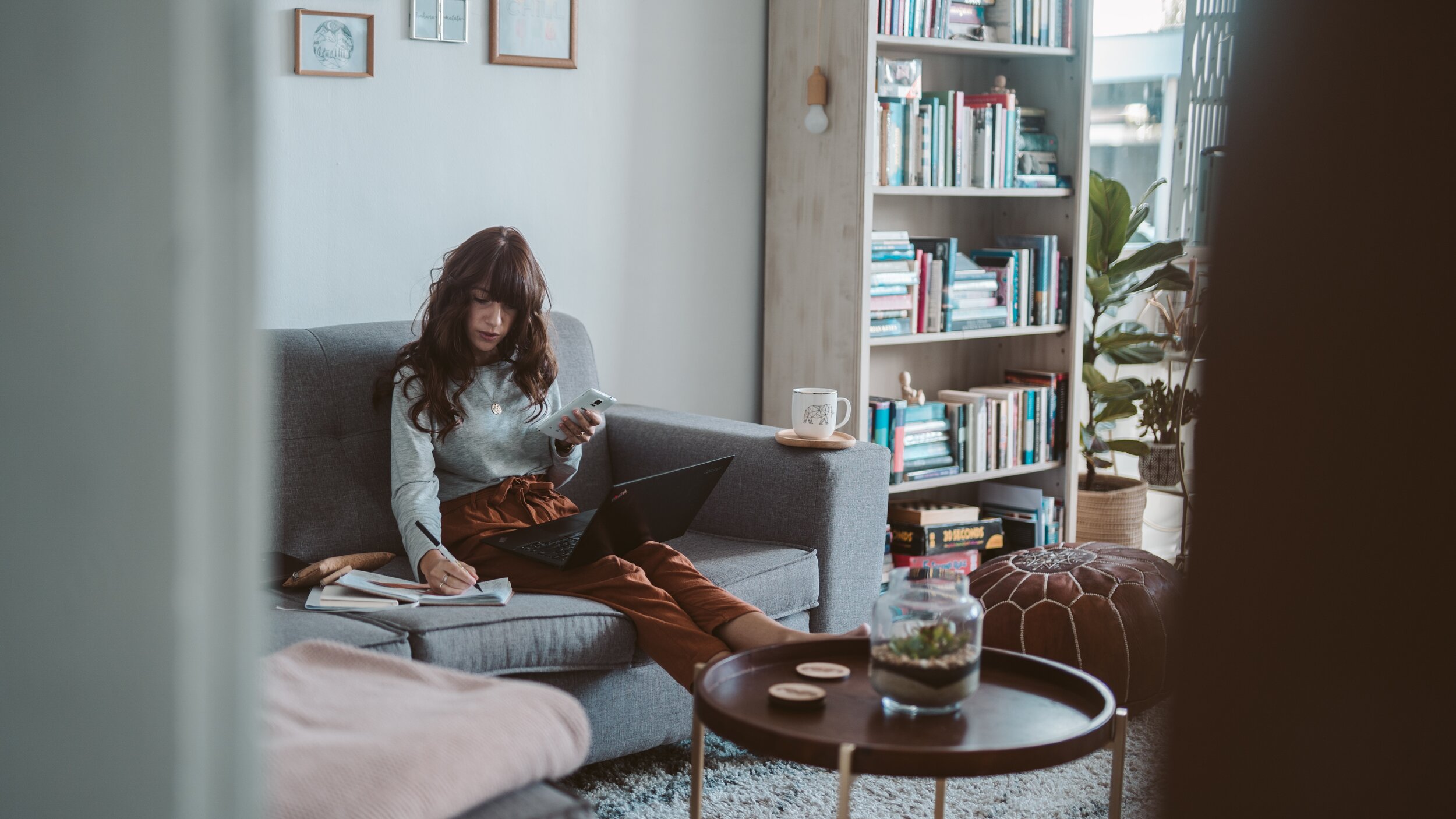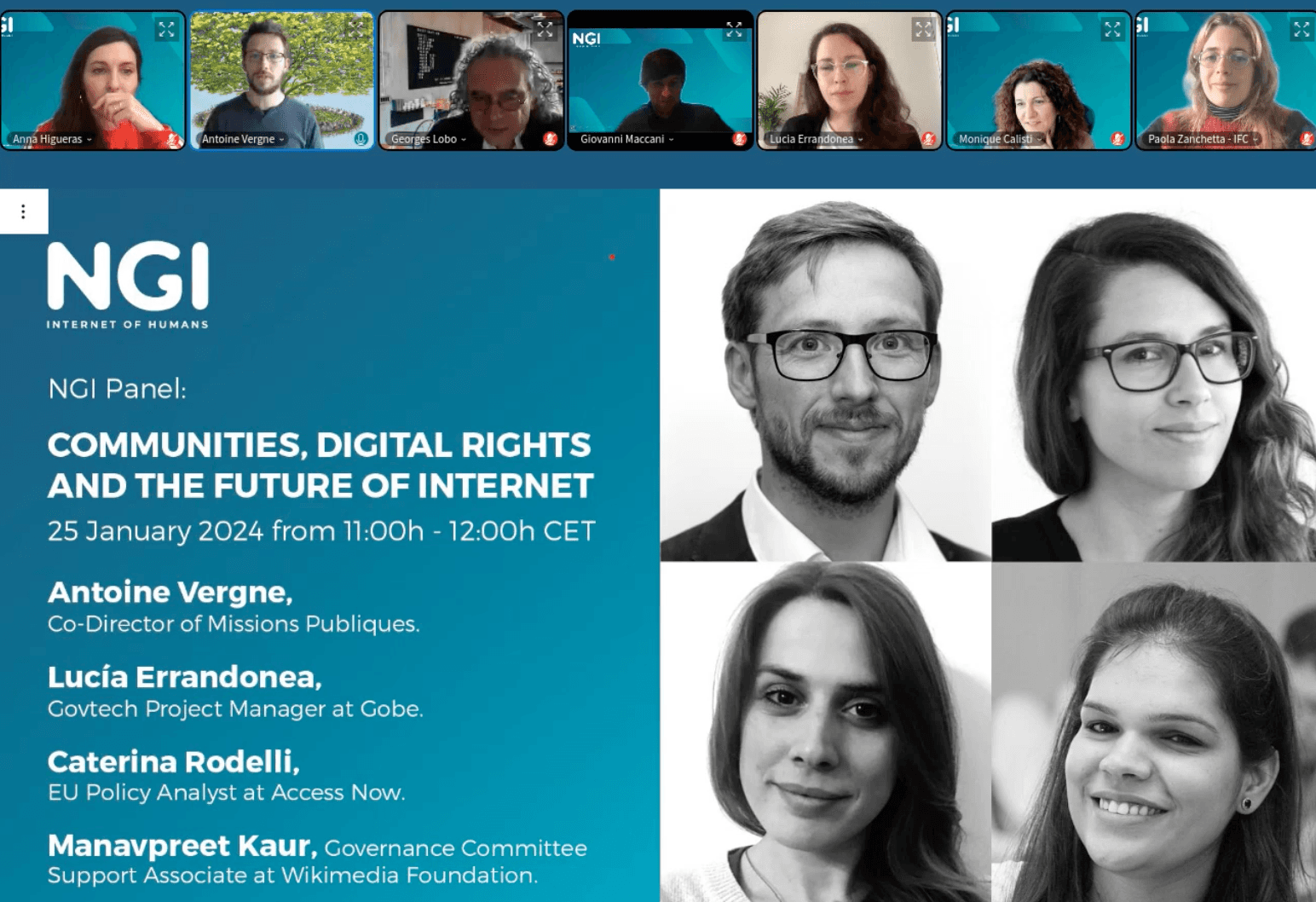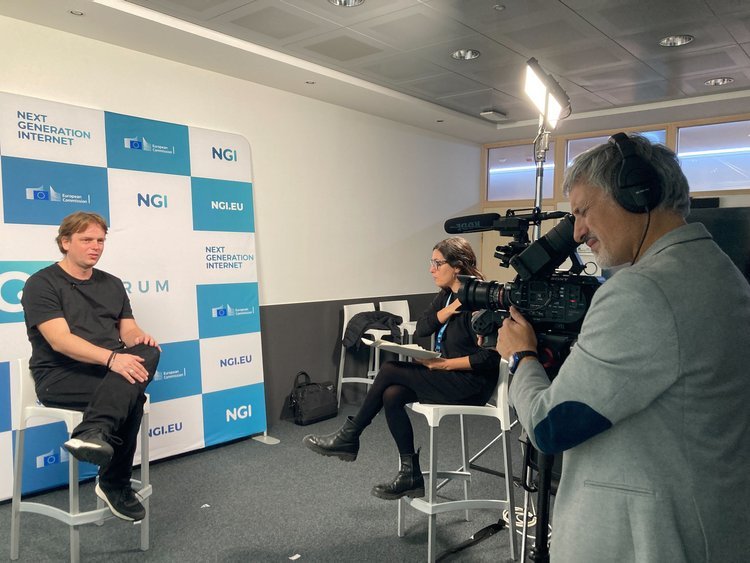Scientific research
Scientific research
We analyse the digital divide for the City Council of Barcelona
We analyse the digital divide for the City Council of Barcelona
25 de noviembre de 2020


By Javi Creus, Founder and Director and Anna Higueras, Project Manager (Original publication in Spanish)
As a result of a survey of more than 2,500 people, the report ‘The digital divide in the city of Barcelona’ analyses the evolution of the level of access to and use of the Internet by Barcelona's citizens over the last four years. It does so, moreover, in the light of the emergency caused by the Covid-19 pandemic, a context that offers an unprecedented x-ray of the city's digitalisation capacities and potential.
Ideas for Change has contributed to the qualitative analysis and drafting of the report, promoted by the Barcelona City Council's BITHabitat Foundation in collaboration with the Mobile World Capital. We are very proud of this work, in which we have also been accompanied by friends such as Institut Opinòmetre, Numérica and 300,000 km/s.
Do you want to know the main conclusions of the study? Don't miss our summary!
1. The gap is narrowing, but Covid-19 tests citizens' digital skills
The digital divide is not disappearing (8.1% of the population still claims not to have access to the network), but it is shrinking. In 2020, 92% of households in the city have a fixed internet connection and 91% of citizens have a smartphone and a data tariff. The fall in the price of data tariffs and low-medium mobile devices, the proliferation of fibre optics and the increased use of instant messaging have contributed to this change, and more than 96% of people under the age of 75 have managed to take an active role in the digital sphere.
This trend, however, clashes with the disruption generated by Covid-19. ICT has gone from being a complement to improve quality of life to becoming an essential tool for today's hyper-connected society. The need to reduce mobility has shifted most functions to the digital realm, and actions such as working, following classes or managing procedures and aid remotely have suddenly grown.
A clear example is the 62% increase in access to the Internet, which has been particularly significant in three areas: teleworking, online education and digital relations with the administration. Some 58% of Barcelona's citizens have been able to telework during the months of confinement, and 73% of those under 16 years of age have successfully followed their education online. In addition, almost 48% of the people surveyed have used medical services in a non-face-to-face manner and 10% have made use of digital channels for citizen participation during the last few months.

In this atypical context, however, many people who were only used to using the internet in a social context have discovered that their digital skills were not sufficient. The demands of everyday online life have shown how important it is to understand the applications, the connection or the type of device we use. A learning process in which factors such as age, level of education or employment status have been paramount.
In parallel, the situation has turned devices such as laptops (present in more than 76% of homes), tablets (60%) or desktop computers (40%) into basic tools for day-to-day use. This increase in the level of demand has reinstated significant differences in income that had been diluted: it is not the same to have a single desktop computer for a family when all the members of the family have to study or work remotely.
2. The administration, put to the test by the digital emergency
Some of the institutions that we usually turn to in the face-to-face sphere have been overwhelmed by the digital emergency. This is the case of educational institutions, where 27% of children were unable to follow their studies at a distance. In almost half of the cases, the reason was that the school did not provide distance education.
Difficulties were also encountered in the administrative field. Some social groups, such as people in vulnerable situations or people over 75 years of age, have required additional equipment, connectivity and mediation to carry out certain procedures.
Although the institutions have made great efforts to overcome these obstacles, it has not always been possible to guarantee optimal functioning.
3. Despite the context, we are ready to overcome the digital barriers.
If one thing is clear, it is that the disruption of Covid-19 has demonstrated the plasticity of digital society. Barcelona's citizens and organisations have amply demonstrated their ability to adapt to new scenarios at a dizzying pace, and this is something that has been possible thanks to the work carried out over the last four years. A similar pandemic in 2016 would probably have had even more severe consequences, and we should be proud of the progress we have made.
However, to ensure that any future similar event has minimal consequences, it is essential to look at the digital divide from a more systemic and dynamic perspective. In order to close it definitively, we must provide solutions and tools to improve the quality of internet use and to support those who, due to their personal situation, are most in need.

4. What next?
Without a doubt, the report promoted by BITHabitat provides very valuable information for the promotion of digital citizenship in the city of Barcelona. It is no coincidence that this analysis has revealed the existence of a structural gap, which affects all those people who do not have access or the necessary equipment to carry out their daily lives, but also a situational gap, which is revealed when connectivity becomes the basic infrastructure for work, education or relations with the administration, among others.
At Ideas for Change we believe that, beyond promoting actions that favour digital inclusion, closing the gap definitively requires the promotion of actions based on digital resilience. Only in this way will we be able to help citizens to be prepared to face critical episodes that, like the pandemic we are currently experiencing, require us to transfer most of our lives to the virtual sphere.
As we are a restless team, we will keep thinking about it - keep an eye on us!
By Javi Creus, Founder and Director and Anna Higueras, Project Manager (Original publication in Spanish)
As a result of a survey of more than 2,500 people, the report ‘The digital divide in the city of Barcelona’ analyses the evolution of the level of access to and use of the Internet by Barcelona's citizens over the last four years. It does so, moreover, in the light of the emergency caused by the Covid-19 pandemic, a context that offers an unprecedented x-ray of the city's digitalisation capacities and potential.
Ideas for Change has contributed to the qualitative analysis and drafting of the report, promoted by the Barcelona City Council's BITHabitat Foundation in collaboration with the Mobile World Capital. We are very proud of this work, in which we have also been accompanied by friends such as Institut Opinòmetre, Numérica and 300,000 km/s.
Do you want to know the main conclusions of the study? Don't miss our summary!
1. The gap is narrowing, but Covid-19 tests citizens' digital skills
The digital divide is not disappearing (8.1% of the population still claims not to have access to the network), but it is shrinking. In 2020, 92% of households in the city have a fixed internet connection and 91% of citizens have a smartphone and a data tariff. The fall in the price of data tariffs and low-medium mobile devices, the proliferation of fibre optics and the increased use of instant messaging have contributed to this change, and more than 96% of people under the age of 75 have managed to take an active role in the digital sphere.
This trend, however, clashes with the disruption generated by Covid-19. ICT has gone from being a complement to improve quality of life to becoming an essential tool for today's hyper-connected society. The need to reduce mobility has shifted most functions to the digital realm, and actions such as working, following classes or managing procedures and aid remotely have suddenly grown.
A clear example is the 62% increase in access to the Internet, which has been particularly significant in three areas: teleworking, online education and digital relations with the administration. Some 58% of Barcelona's citizens have been able to telework during the months of confinement, and 73% of those under 16 years of age have successfully followed their education online. In addition, almost 48% of the people surveyed have used medical services in a non-face-to-face manner and 10% have made use of digital channels for citizen participation during the last few months.

In this atypical context, however, many people who were only used to using the internet in a social context have discovered that their digital skills were not sufficient. The demands of everyday online life have shown how important it is to understand the applications, the connection or the type of device we use. A learning process in which factors such as age, level of education or employment status have been paramount.
In parallel, the situation has turned devices such as laptops (present in more than 76% of homes), tablets (60%) or desktop computers (40%) into basic tools for day-to-day use. This increase in the level of demand has reinstated significant differences in income that had been diluted: it is not the same to have a single desktop computer for a family when all the members of the family have to study or work remotely.
2. The administration, put to the test by the digital emergency
Some of the institutions that we usually turn to in the face-to-face sphere have been overwhelmed by the digital emergency. This is the case of educational institutions, where 27% of children were unable to follow their studies at a distance. In almost half of the cases, the reason was that the school did not provide distance education.
Difficulties were also encountered in the administrative field. Some social groups, such as people in vulnerable situations or people over 75 years of age, have required additional equipment, connectivity and mediation to carry out certain procedures.
Although the institutions have made great efforts to overcome these obstacles, it has not always been possible to guarantee optimal functioning.
3. Despite the context, we are ready to overcome the digital barriers.
If one thing is clear, it is that the disruption of Covid-19 has demonstrated the plasticity of digital society. Barcelona's citizens and organisations have amply demonstrated their ability to adapt to new scenarios at a dizzying pace, and this is something that has been possible thanks to the work carried out over the last four years. A similar pandemic in 2016 would probably have had even more severe consequences, and we should be proud of the progress we have made.
However, to ensure that any future similar event has minimal consequences, it is essential to look at the digital divide from a more systemic and dynamic perspective. In order to close it definitively, we must provide solutions and tools to improve the quality of internet use and to support those who, due to their personal situation, are most in need.

4. What next?
Without a doubt, the report promoted by BITHabitat provides very valuable information for the promotion of digital citizenship in the city of Barcelona. It is no coincidence that this analysis has revealed the existence of a structural gap, which affects all those people who do not have access or the necessary equipment to carry out their daily lives, but also a situational gap, which is revealed when connectivity becomes the basic infrastructure for work, education or relations with the administration, among others.
At Ideas for Change we believe that, beyond promoting actions that favour digital inclusion, closing the gap definitively requires the promotion of actions based on digital resilience. Only in this way will we be able to help citizens to be prepared to face critical episodes that, like the pandemic we are currently experiencing, require us to transfer most of our lives to the virtual sphere.
As we are a restless team, we will keep thinking about it - keep an eye on us!


